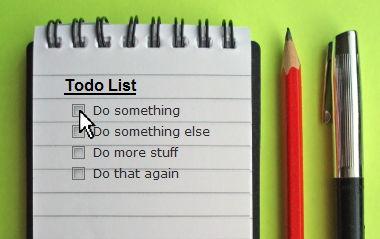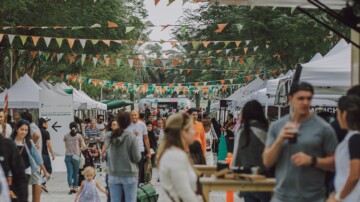Event Fundraising Contests That Will Blow Your Mind!!

We’ve touched on task-based event fundraising contests here before, but because this way of motivating your supporters is so effective we thought it was time to revisit the topic in more detail.
But before we get too far here’s a simple way to think about task-based fundraising contests: Instead of asking participants to raise [insert $ amount here], ask them to complete a series of tasks that will lead to them raising more money.
A key point to remember is that these contests are about encouraging people to take specific actions, not always about the amount of money people raise. They work because we know that very successful peer to peer participants exhibit behavior that correlates to higher fundraising. They:
- Register early
- Send emails to as many people as possible, multiple times
- Customize their personal page with own story and picture
- Belong to a team
- Use social networks like Facebook, Twitter and YouTube
If we create contests to encourage these behaviors in all fundraisers, it can help raise incremental revenue.
Why Does Task-Based Fundraising Work?
… we know the activities we’re asking people to do will result in their friends and family supporting them by making donations. It’s as simple as that.
11 Great Task-Based Fundraising Ideas
The following ideas are collected from events put on by top peer-to-peer fundraising organizations like the American Heart Association, Autism Speaks, Dana Farber Cancer Center, Susan G. Komen and the American Cancer Society:
- For every 10 emails you send through your Personal HQ between <date> and <date>, we will enter you into a drawing to win <prize>!
- Send 15 emails from your HQ and get a reward (small logo item like a water bottle), send 30 emails and win (better reward)
- Start a team by <date> and win
- Refer a Friend as a Team Captain
- Sign Up as a Team Captain Yourself
- Recruit 5 Walkers (team captains only) and be entered to win <prize>
- Personalize your online fundraising page by <date>
- Share Your Story on Facebook and be entered to win <prize>
- Raise $100 online by <date> and be entered to win <prize>
- For every $100 you raise online by <date> you will be entered to win <prize>
- Order a tribute sign (for the event route) and be entered to win <prize>
A Deeper Look
Let’s look at an example and possible results of a task-based fundraising contest that encourages participants to send more fundraising emails to their friends:
Contest: For every 10 emails you send on <date>, you’ll be entered in a drawing to win <prize>.
Potential results: If one of your participants sends 30 emails on the day of your contest they’d receive 7.5 donations of $60 each resulting in $450 raised in a single day.
How’d we get to those results? Benchmarks drawn from our Friends Asking Friends events tell us that on average, one out of four emails sent by a participant from their Friends Asking Friends (FAF) headquarters results in a donation and the average online gift size is $60.
This makes each FAF email potentially worth $15 in donations to you, if your events perform close to our statistical averages.
Just imagine if you could inspire people to send emails to a few hundred of their friends, family, co-workers, gym buddies, book club, church members, etc. Get a large number of participants to send out fundraising emails, and the money will follow.
For more Friends Asking Friends benchmarks, see Amy Braiterman’s post “Averages, medians and modes … Oh my!” [defunct link removed]
Find Out Which Contests Work Best with Your Public
Event supporters vary, and what constitutes a great fundraising contest may be different depending on the public you work with and your state or region of the country. You may have to experiment to learn which type of contests fire up your supporters and result in the best fundraising bumps.
Bridget Burns, the event coordinator for The Ride for Roswell, a popular cycling event in Buffalo, New York, shared with me the contests that have been most effective for her:
Burns said “We have a very strong following on our social networking sites, Facebook (4,332 fans) and Twitter. There are a few different reasons we offer contests: to recruit riders to join the ride and promote the event, to raise more funds, and to promote our social networking sites with re-tweets and fan ‘likes’.“
Her most effective contest states: Register for the Ride and share your inspirational story about why you ride. Have your friends ‘like’ your post and be entered to win a $50 gift card”.
This contest is easy and effortless for the user to enter and can spread throughout Facebook very fast. It’s a win-win; the fan page gets a new fan and the fans have the chance to win a donated item. Don’t forget that social fundraising can increase results by up to 40%.
Her second most effective contest states: Raise $150 by the end of February and you will be entered into a drawing for 1 of 2 iPod Nanos.
While this type of contest is more involved because it requires registered riders to raise money within a certain time period, they raised the quality of the prize to make it more intriguing to work towards winning.
How Much Should I Spend on a Prize?
You want your prize to be tantalizing enough to encourage people to go for it; at the same time you do not want to break the bank.
Many prizes, like dinners at local restaurants or passes to a popular regional attraction, may be donated by sponsors. Others, like logo merchandise or the ever-popular iPods or iPads may need to be purchased.
These guidelines from Donna Wilkins at Charity Dynamics will help you determine how valuable a contest prize to offer.
- Pick a prize that will easily be affordable within the amount you expect to raise.
- Look to get 5-10 times your money back on the contest.
- Use metrics from your previous events to determine how much you might raise through the contest. For example, for a “registering by X date” contest, use the following to determine the prize value:
- How much more does a participant who registers early raise than one who signs up at the last minute?
- How many extra early registrations do you need to get 5-10X your money back on the prize investment? A large event may be able to afford to offer an iPad as a prize, while a smaller event might look for a dinner donated by a local restaurant.
5 Proven Tips for Success
- Set an end date for your contest that’s near enough to make it urgent to take action now.
- Use email to promote your contests to participants
- Recognize contest winners by email to motivate other participants to take part in the next contest.
- Explain how to use the tools required for the contest activity if participants need to complete a task like update their personal page.
- Or, use your contest announcement email to provide fundraising tips, like this message from Walk Now for Autism Speaks Chicago:
- Raise at least $150 between (date) and (date) and be entered into a raffle to win a 16GB Apple iPad with Wi-Fi courtesy of (sponsor).
- How can you raise $150? Ask 10 people for $15. Or ask 15 people for $10. For just $150, you can purchase a tribute trail sign to honor your loved one that will be placed along our finish line. It’s a wonderful way to pay your tribute and a great place for photos at the end of a wonderful day. Teams and companies can take home the 11″ x 17″ laminated sign at the end of the walk as a keepsake.
Don’t go too crazy on contests. Individuals sign up for peer-to-peer events because they care about the cause. If every email you send hypes yet another contest, you risk creating the impression that the event’s all about the money.


